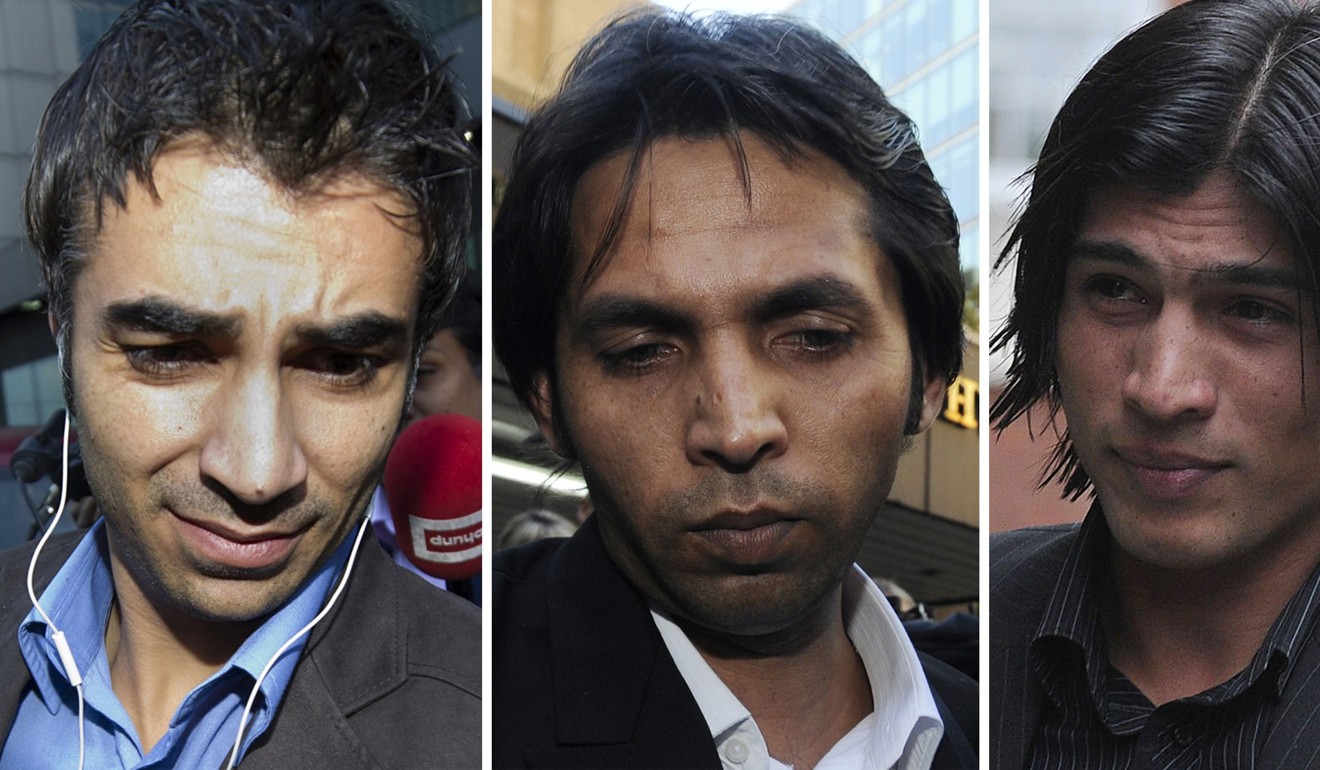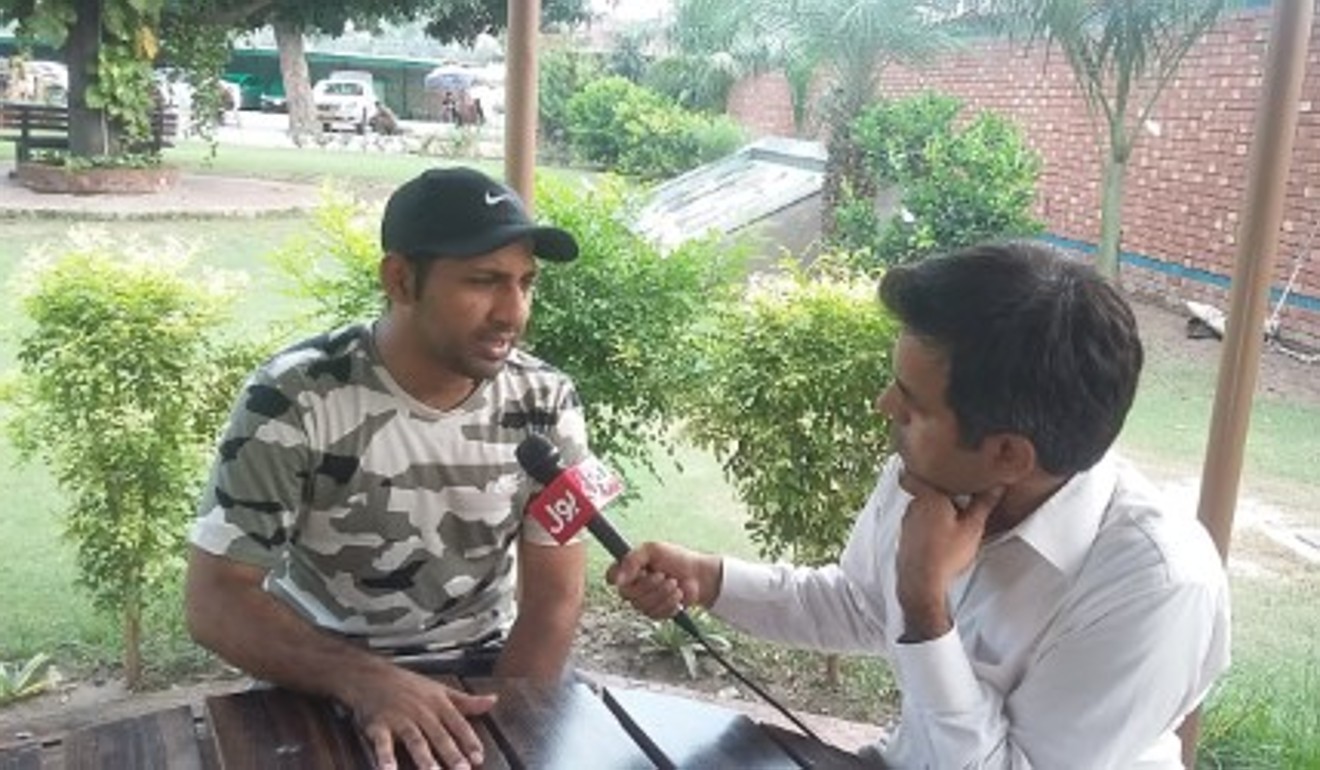
Pakistan cricketers most vulnerable to match-fixers because of weak security, says veteran commentator
- Ejaz Wasim says the Pakistan governing body lacks professional security
- Pakistani players are easier to approach than players from other nations
Pakistani cricketers remain more vulnerable to match-fixers than players from any of the other top test nations, says one of the country’s leading cricket commentators.
Ejaz Wasim, who works for the Bol Network in Pakistan, says little is being done to protect Pakistani players from match-fixers – more than eight years after the spot-fixing scandal that resulted in jail time for Mohammad Amir, Salman Butt and Mohammed Asif.
“Cricket in Pakistan is still not professional, there are no professional anti match-fixing personnel in the Pakistan Cricket Board [PCB],” said Ejaz.
“At the Asia Cup in United Arab Emirates [in September], I didn’t see a single Indian player in the lobby of the hotel that they were staying in but saw many Pakistani players without security.
“They were walking around, in malls and restaurants without permission and no one is checking. It is so easy for them to be approached by anyone who may make offers. There is no professional security team around them.”
In 2010, Amir, Salman and Asif were found guilty of spot-fixing during a test match in England. Bookmaker Mazhar Majeed was secretly filmed by undercover reporters from News of the World accepting money and predicting that fast bowlers Asif and Amir would deliberately bowl no-balls at specific points in an over.
All four were handed prison sentences. Amir has since made a successful return to the Pakistan test team after serving his sentence in England.

As recently as September, 2017, five Pakistani players – Sharjeel Khan, Shahzain Hasan, Khalid Latif, Mohammad Irfan and Nasir Jamshed – were implicated by the PCB for various spot-fixing offences during the Pakistan Super League T20 competition.
The South China Morning Post asked the PCB what steps the body is taking to ensure security for Pakistani cricketers but they had yet to respond.
Ejaz said authorities had yet to change the culture in Pakistan cricket, although the players are beginning to understand the dangers of match-fixing.
“I still don’t see a change in culture overall, but individually, the players are starting to see for themselves,” he said. “We have lost about nine players in the past eight years. There are 25 in the player pool, they understand that they don’t want to lose credibility and their place in the team.

“But when a lot of money is involved, it is easy to get tempted. Maybe they can get trapped in the future but right now, they understand they must be careful who they meet.”
Ejaz said it is because of Pakistan’s vulnerability that their players are mostly targeted by the western media. He praised the recent Al Jazeera Investigations team for their two-part documentary series on alleged match-fixing involving the England test team.
He said Al Jazeera reporter David Harrison and his team undertook great risk to infiltrate the world of suspected match-fixer Aneel Munawar in their Munawar Files episodes.

“Match-fixers are very powerful and this is a reality,” he said. “They have a big network, in Dubai, Karachi and other places. Al Jazeera took on great risk.
“As a Pakistani journalist, if I wanted to start a sting operation maybe my office would not help me because everyone knows match-fixers, they have money. It’s still not proven how [Bob] Woolmer died, many people believe match-fixers killed him.
“It’s not a great justice system we have here. In the last few years, 26 Pakistani journalists have been killed. In this country it is common for people to be killed for 2,000 (HK$117), 3,000 or 5,000 rupees.
“Life is cheap here, so that’s why the PCB must take professional steps to protect the players.”
Former Pakistan coach Woolmer died suddenly in Jamaica in 2007 after the team were beaten by Ireland in the Cricket World Cup.
Jamaican police opened a murder investigation but in November 2007, a jury returned an open verdict on his death because of a lack of evidence of a criminal act or natural causes.

